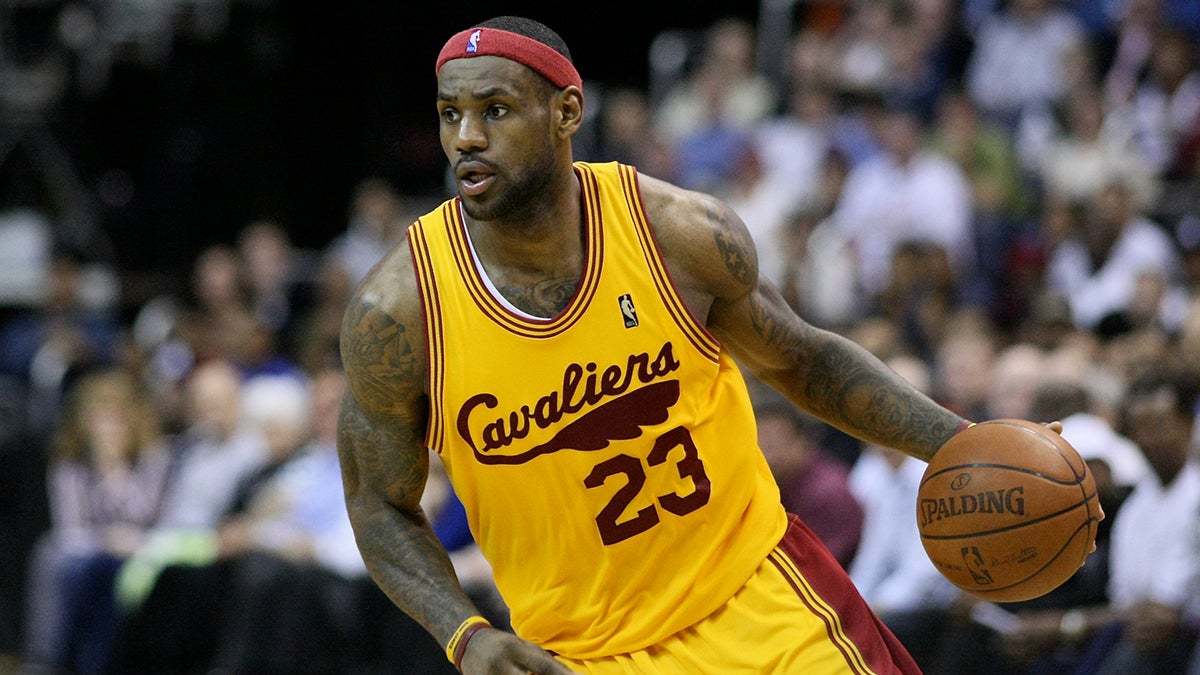LeBron James response to racism transcends basketball

LeBron James of the Cleveland Cavaliers spoke out after his home was vandalized with a racial epithet. (Keith Allison/ Flickr Creative Commons)
I worry about our black boys.
Not because statistics show they are more likely than their white counterparts to suffer through poverty, or imprisonment, or violence. No, I worry about our black boys because like all children, they are filled with a sense of optimism, and I don’t want the world to steal it from them.
I saw that optimism this week when I visited with a group of boys at Pennypacker elementary school, where my place of worship, the Great Commission Church, is partnering with the school on a mentoring program. We talked to the boys about their hopes for the future, and learned that some of them are brilliant. Others are searching. Several have run afoul of the disciplinary system. But all of them, when asked about their hopes, say they want to be professional athletes.
That will change over time. They are fifth and sixth graders, after all. But for now, if sports is their dream, I encourage them to learn more than the game. I want them to learn contract law so they can be sports agents, mathematics so they can be general managers, strategic planning so they can be coaches, and business administration so they can be team owners.
But this week, when I watched LeBron James’ reaction to the N-word being spray-painted on a home he owns in Los Angeles, I realized that we should encourage black boys to do one additional thing.
We should encourage them to be more like LeBron James.
Yes, James is arguably the greatest basketball player on the planet, and his team is currently playing for the world championship. But his greatest attribute, in my view, is his willingness to speak the truth.
He did so at a press conference on the eve of the NBA championship series, when he was asked about his home being vandalized with a racial epithet.
“No matter how much money you have, no matter how famous you are, no matter how many people admire you, you know being black in America is tough,” James said. “And we got a long way to go, for us as a society and for us as African-Americans, until we feel equal in America.”
James, the star player for the Cleveland Cavaliers and the winner of three NBA championships, spoke of the case of Emmit Till, a boy who was murdered in the Jim Crow South after allegedly whistling at a white woman in the 1950s. In doing so, James demonstrtated that he knows far more than basketball.
He knows history, he knows his country, and he knows what it feels like to be black.
“Hate in America, especially for African-Americans, is living every day,” James said. “And even though it’s concealed most of the time, even though people hide their faces and … when they see you they smile in your face, it’s alive every single day.”
Sadly, James’ experience is all too familiar for many African Americans. If things are to change, we must be honest about the impact of racism on our lives.
Unfortunately, there are those who want to whitewash the truth of racism, and some of them are black.
I was sad to see sports commentator Jason Whitlock—an African American—respond to James’ comments by saying that racism was not an “issue” for a black person as wealthy as LeBron James.
That opinion, expressed on The Herd with Colin Cowherd,” on Fox Sports, was misguided, at best.
Whitlock must have forgotten that a sales clerk in a high end Swiss boutique refused to show Oprah Winfrey a $38,000 Tom Ford handbag because she assumed Winfrey couldn’t afford it. Or that employees in the hermes store in Paris refused to let Winfrey inside. Winfrey is a billionaire.
Perhaps Whitlock didn’t know that black tennis star James Blake was tackled and handcuffed by an undercover New York police officer when Blake had done nothing wrong. Maybe Whitlock forgot that black basketball star Thabo Sefolosha had his leg broken in an altercation with New York police.
Each of these three people were rich, but they were black. As such, they were forced to endure things that their white counterparts will never face.
I want the boys we are mentoring to understand that even if they become sports stars and earn wealth beyond their imaginations, they must remain grounded. They must know who they are. They must surround themselves with people who loved them before the money. Above all, they must love themselves.
LeBron James has shown that he understands that.
I pray our boys will grow to understand it, too.
Listen to Solomon Jones weekdays from 7 to 10 am on WURD Radio
Photo by Keith Allison/ Creative Commons
WHYY is your source for fact-based, in-depth journalism and information. As a nonprofit organization, we rely on financial support from readers like you. Please give today.


